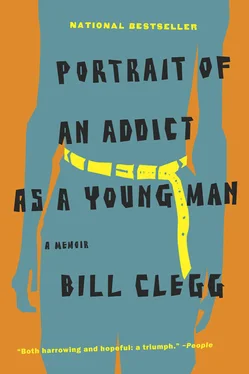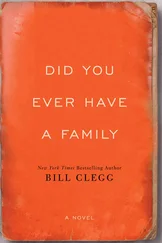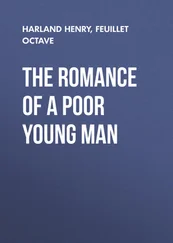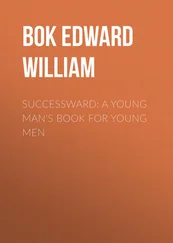In that room, I sit in a chair and feel lighter than I have ever felt — relieved, an impossible weight lifted — until faces begin to appear like fireworks. They keep coming, one after the other — they belonged to my life once, I think — and I feel, sharply, the anger and grief and disappointment and scorn I imagine they hold. I feel heavy again in that chair and sometimes I sit there for hours. I pace my room and leave messages on cell phones and voice mails. Some call back, some never do. I crouch on my knees and pray. For help. For a way through this. For forgiveness. I think of one of my favorite poems and see the predictions it held. I remember my life, how it all mattered so much once, and then not at all. I remember the last lines of a book I believed I understood. When it feels like the end of the world, it never is. I knead these words like a rosary and write them in letters and speak them over the phone and into the wind in that field. I lose faith in them, but pray they are true. They are.
I remember all the cabdrivers and hotel employees, dealers, and addicts. The ones who prickled with disgust, fear, or ecstasy, and the ones who said in the same gentle tone that everything would work out, that it would all be okay. I wonder who they thought they were talking to, who it was they saw, who they were. There are things that will always puzzle me — the conversations, the great ballet of taxis and cars, government agents and cops, the JCPenneys — that I will never be able to see clearly enough to distinguish truth from delusion. With these things, these memories, I am only able to remember what they looked like, how they sounded, how it felt. I remember looking out from the balcony of the Gansevoort Hotel that morning. All those people strolling, impossibly, at five a.m.; the Town Cars and the words written on cards that I will always wonder about and often think I should look up to find some meaning in but never do. I remember the seagulls wheeling in great arcs above the river. There were so many.
There is a time, much later, when I imagine what it was like for everyone else, those who were by blood, accident, or inclination involved. Those who were wounded, who wounded. The former came first and fiercest: the employees at the agency who lost their jobs; the writers I represented who depended on me and had to scramble to find new agents; family; friends; Kate. Noah. At first I’m consumed with shame and guilt and regret, but slowly, with the help of kindred spirits, these feelings evolve, are still evolving, into something less self-concerned. The landscape of the latter, with the daily help of those same kindred spirits, is journeyed into. Much remains a frontier.
I wonder what it was like for my father. How the hours I remember from my childhood were for him. What worry he knew. How that drive back from the doctor in Boston went for him. And after. What did he think after the car doors slammed shut and I’d disappeared into the house? Where did he go? To his den to pour himself a Scotch? Around the side of the house to pee in the pachysandra? Or did he stay in the garage and listen to the cooling engine tick down, the tread of footfalls above him in the kitchen. How long might he have stayed there? Did he worry that he’d taken the wrong tack? Been too tough? Too harsh? How would his father have handled it? How much of that man could he even remember? Nineteen years old, when his father died, was a long time ago. He was in college then, planning to join the navy and fly. Fly away from Boston. Jets, cargo planes, it didn’t matter — just take flight. How far away did nineteen feel to him that day? How far six? Six years old. What did he know about six-year-old boys? How frightened was he? What didn’t he do that day in order to drive his boy to Boston from Fairfield County, Connecticut? What bills didn’t get paid? What lawn didn’t get mowed? What small plane didn’t get fixed or flown in order to do what he thought might help this boy, this boy of his who danced like someone had set him on fire every time he peed? This same boy the doctor said had nothing wrong with him. What the hell was he supposed to do? Wasn’t he supposed to be firm? Isn’t that how children learned? Wasn’t that how men were with their boys?
I wonder if he worried like this. Or did he simply believe that whatever was broken could be fixed by force, that something bent could be hammered straight.
I return to New York and find a small, bright studio with a terrace, and from every corner of the place, I’m able to see the Empire State Building. I kiss someone on the Fourth of July, a friend who becomes more, and he loans me money to afford that place. I sell a photograph I had purchased years before, and with that money and the borrowed money, I am able to live in New York, not work for the first time since I was a teenager, and find, with help, a way to get through the days and nights without escaping them. Gradually, mornings become merely mornings, not panic-stricken hours managing the consequences of not coming home before daybreak, and evenings aren’t spent imagining excuses and schemes to get through the next day. Days are just days, not stages where I’m choreographing some complicated piece of theater — the lights, the lines, the costumes — in order to control the outcome, protect myself, get what I think I need.
Returning to publishing doesn’t seem possible. It feels like a scorched field that can no longer hold life. But I am wrong. A woman I met once at a party, years before, calls and asks me to lunch, and at that lunch she offers me a job. She talks about courage and no new damage and we eat and drink coffee and it feels like home. The first days back are terrifying, but not in the same way as before. I don’t worry about being a fraud or being found out, as I had for all those years. I show up at that office representing one writer — Jean, who, when I told her I was going back to work, wrote her very established agent to say she was switching her representation. Walking through the shiny doors of the agency that day, I somehow trust that if it turns out to be my last one, and she my last client, I will be fine — that the sky won’t fall, that it’s just not meant to be. It turned out that day was not my last. I’m still in that same office, and have other clients to keep Jean company.
For a long time, I will hear Noah’s despairing voice pleading with me, so many times — from behind closed doors, across tables, through phone lines. I will remember every night at the Knickerbocker, every extra drink I snuck when he went to the bathroom. I will remember his coming out to Oregon for family week, standing in the parking lot in his gray snap-front jacket and beard, looking so clean and honest and faithful and loving. I will remember how grateful I was that he never left me. I will remember how his beautiful hands pulled me up that last time and how I fell away from them — finally, because I had to — and moved through the doorway, alone.
In the year before I go back to work, I call my father at least a few times a week, often in the morning as I walk along the Hudson River in a lush park I had, before, not even known was there. We talk, for the first time in many years, and each time, I’m amazed. The very first time we speak is when I’m still in White Plains. The phone rings in my room, I answer, and he is on the line. Willie, he says, after a while, I’m sorry . He tells me everything he remembers and I listen, quiet, and grateful that I hadn’t made it all up. I tell him that my being in rehab is not his fault, that my boyhood struggles did not cause what happened, merely shaped it. Time stops during that phone call; I want it to be over and also never to end.
That October, he asks me to fly in his Cessna from Connecticut to Maine. The small airport is just down the road from where we lived, a few minutes from my high school. I had forgotten how loud small planes are, how light, and how confident my father is in them. His hands glide with easy purpose over the same gadgets and knobs and lights and flaps he handled when I was a boy, and all of it is just as mysterious, just as unknowable. We take off in a field that is also a runway. We shudder along in the way little airplanes do and then, in the split second that always feels as if fairy dust has been sprinkled, we leave the earth, lift quickly, higher and higher, above the towns and schools and the colorful rot of autumn. The roar of the engine and wind make talk impossible. A pile of maps rests in my lap. Side by side, tossing in air, above the fields and hills and roads where everything happened, we are silent.
Читать дальше












